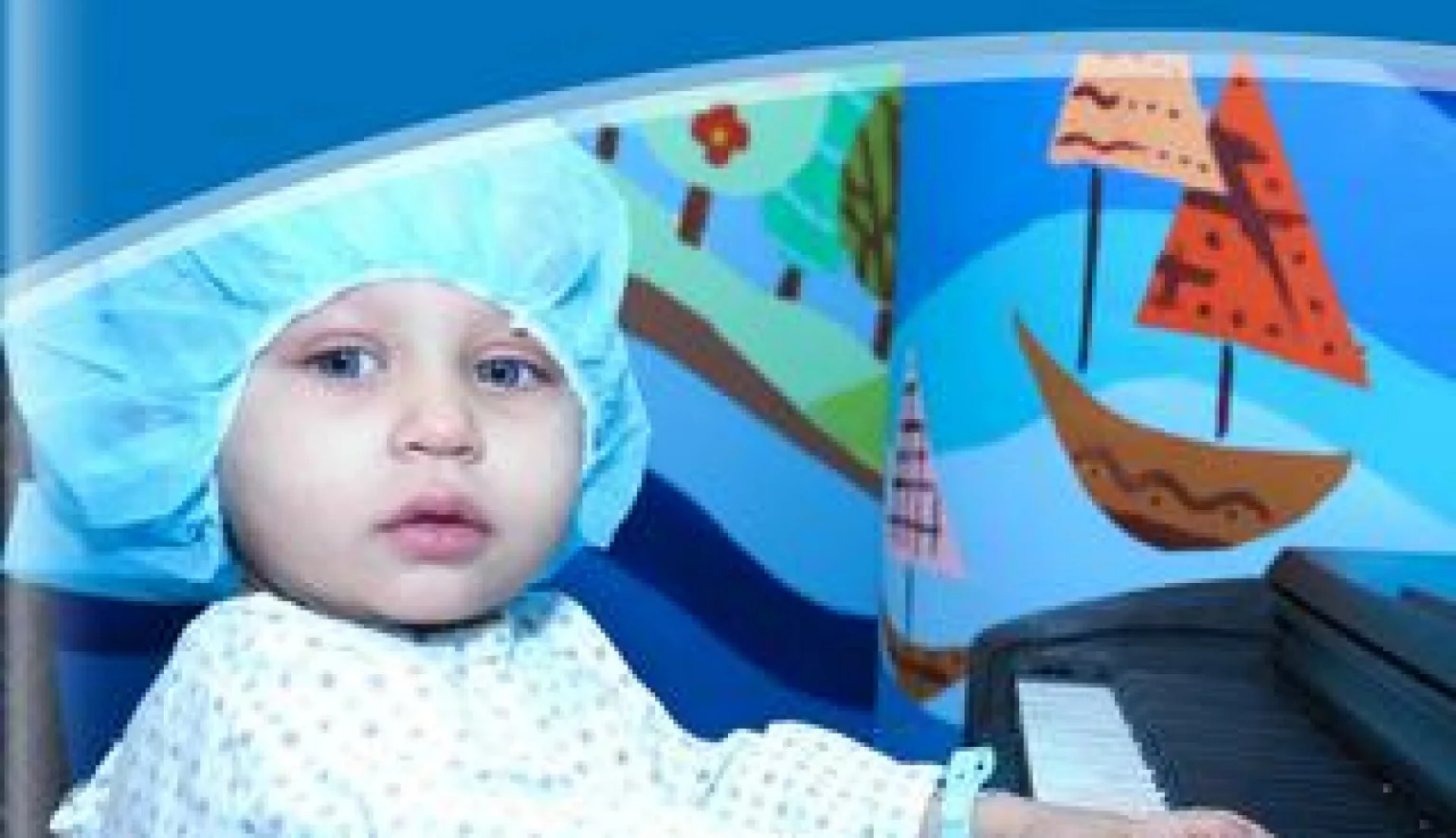King Hussein Cancer Centre is a leading facility in the developing world, breaking new ground in the Middle East in the pursuit not only of internal excellence, but of improved regional healthcare.
INTRODUCTION
In just 20 years, the King Hussein Cancer Foundation and Centre has grown from a hospital comprising just two full-time oncologists to be one of Jordan’s, and indeed the region’s, leading non-profit healthcare institutions with more than 250 consultants and oncologists to call upon.
Established by Royal decree back in 1997, the institution has evolved exponentially not just from a capacity perspective, but in the quality of care offered and across the research & development carried out. The result: King Hussein Cancer Centre (KHCC) now treats more than 60 percent of all cancer cases in Jordan, with survival rates comparable to anywhere else in the developed world.
“KHCC is the only specialised tertiary hospital that provides all treatment modalities and services for cancer care in addition to bone marrow transplantation for adult and paediatric patients in Jordan,” elaborates the Centre’s Chief Executive Officer and Director General, Dr Asem Mansour. “It has developed its organisational structure from mere medical and non-medical departments, to include cross-departmental units and programmes that focus on specific cancers.
“This is referred to as multidisciplinary management of cancer patients and is practiced continuously at KHCC through multidisciplinary organised teams (MDT) or clinics (MDC).”
Developing in collaboration with leading institutions from around the world, KHCC’s clinical cross-departmental services include: breast cancer, gastrointestinal malignancies clinic, adult lymphoma, head and neck, thoracic, gynaecological malignancies, sarcoma, adult neuro-oncology, genitourinary malignancies, thyroid, adult leukaemia, adult ocular oncology, paediatrics solid tumours, paediatric neuro-oncology, and paediatric leukaemia services.
“KHCC additionally provides patient support services through non-medical units and programmes including psycho-social services, pain management, physical therapy and rehabilitation, nutritional services, child social life/education/play therapy, patient and family education, and support group services,” Mansour adds.
A total of 352 beds are in place across both new and pre-existing inpatient buildings, while the new adjacent King Salman Bin Abdulaziz inpatient facility contributes a further 179 single-occupancy rooms to the tally; the combination accounting for intensive care, bone marrow transplants, paediatric patients, and oncology admissions.
The physical extension of its campus has continued in 2017 as well with two new inpatient and outpatient building set to be unveiled in September.
“With the full operation of the new buildings – which includes seven state-of-the-art operation rooms that allow for advanced integration options – the Centre will be able to receive 7,000 new cases yearly. The number of inpatient admissions will reach 14,000,” Mansour explains.
PURSUIT OF EXCELLENCE
At present, the patient number sits at around 3,800 new patients each year, as well as around an average of 150,000 outpatients each year. This number is set to rise by more than 100,000 though in light of the ongoing expansions and ever-broadening positive recognition.
To date the Bone Marrow Transplantation (BMT) Programme at KHCC has performed 1,570 transplants, including the most difficult and complicated types of bone marrow transplants. With the expansion, the number of annual transplants performed is expected to reach 300 cases; which will make KHCC the largest BMT centre in the region in terms of capacity, and one of the most advanced in terms of quality.
“In its ongoing pursuit of excellence, KHCC received international accreditation from the Joint Commission International (JCI), the international arm of the Joint Commission that accredits and certifies healthcare organisations and programmes in the US,” Mansour continues. “KHCC is currently working on two important accreditation applications for 2018, one for nursing quality and another for clinical research programmes.
Between the two, a whole host of accreditations and quality-affirming certifications have been added to the KHCC repertoire, serving as an indictment of the Centre’s unwavering dedication to forward-thinking healthcare and continuous improvement.
“Through a comprehensive strategic plan, KHCC seeks to sustain excellence and expand infrastructure by upgrading existing services, and starting new ones in the new outpatient and inpatient buildings,” Mansour says. “Other areas of improvement the Centre is looking to implement is innovation in – and expansion of – medical services and programmes including cell therapy and an applied genomics lab; capacity building, training and development including the establishment of a training academy; cancer control and research to raise awareness about the dangers of tobacco consumption and to educate the public about healthy lifestyles and wellness; and fostering safe and effective person-centred care through the implementation of clinical practice guidelines, monitoring, and continuously upgrading and automating our patient management systems.”
Facilitating its own growth, a host of investments have been made to sustain such proactive progression, ranging from new state-of-the-art healthcare technologies such as expanding diagnostic radiology equipment and two new linear accelerators for radiation treatment of cancer patients; to the aforementioned facility renovations and new departments; and new machinery including the introduction of intraoperative neurosurgery in which magnetic resonance images of a patient’s brain are taken to help the neurosurgeon locate a tumour.
ENHANCING QUALITY OF LIFE
Involving itself so wholly and effectively in the latest healthcare trends, technologies and innovations inevitably requires stringent collaborations and market research, as well as affiliations and memberships such as ones enjoyed as part of the EORTC (European Organisation of Research and Treatment of Cancer) and the WIN consortium (Worldwide Innovation Networking in Personalised Cancer Medicine).
“These memberships give us access to state-of-the-art clinical trials that are concurrently being conducted in other leading cancer centres worldwide,” Mansour notes. “Such clinical trials usually address difficult diseases with grim prognoses and incorporate novel biomarker-driven treatments that are not available for patients outside the research setting.
“Similarly, our pharmacy department is always on the lookout for changes in medication safety profiles and drug withdrawals and communicates this promptly to medical staff.”
KHCC is concurrently working on obtaining AAHRPP (Association for the Accreditation of Human Research Protection Programmes) membership to further strengthen its role in the global healthcare community; an initiative that not only enhances the reputation of the institution, but also the individual opportunities for knowledge sharing for the Centre’s employees.
“From a personnel perspective, transforming the training centre into an education and training academy was an important step in providing the necessary training to improve the skills of KHCC employees and healthcare workers in the field of cancer within Jordan and the region,” Mansour affirms. “As a multi-accredited institution, KHCC focuses on increasing self-awareness, motivation, self-empathy, and effective communication and relationships among all departments and staff.
“And the introduction of academic programmes offering diplomas and Masters degrees will elevate that level of training across cancer informatics, nursing, oncology, palliative care and pain management, infection control, and others.”
Also bringing into play a strong ethos of localisation, the need to bridge the skills gap and to make Jordanian healthcare more sustainable in the future also spills over into more concerted corporate social responsibility (CSR) activities; two of which the KHCC is spearheading at national level.
Mansour details: “First is the Jordan Breast Cancer Programme (JBCP) which leads national efforts in fighting breast cancer through early detection and screening. The programme oversees quality of service provided nationwide and provides technical training in the field, as well as strategic consultation for similar programmes. JBCP has drafted the national guidelines for breast cancer early detection. It launches and supports breast cancer awareness campaigns yearly in October to emphasise the importance of screening and early detection in saving hundreds of lives. It additionally manages a mobile screening and mammography programme that reaches out to underserved communities in remote areas outside of the city of Amman.
“And secondly is the Cancer Control Office (CCO) at KHCC which is the implementation of evidence-based interventions to reduce the burden of cancer through reducing incidence and the related morbidity and mortality, and through enhancing the quality patients’ lives.”
HOLISITIC TREATMENTS
The Khaled Shoman Training Centre at KHCC is another example of the institution broadening its reach in acting as a modern space for hosting academic education and training activities for both KHCC staff and the local community.
And such commitment to widespread improvement is just one asset of many that Mansour attributes to the overall success of the Centre.
“It’s also the reasonable medical care costs compared to other hospitals within the EU, the UK and the US,” he adds. “Other advantages include our multidisciplinary approach for our team of physicians and nurses to make medical decisions; our holistic treatments that cover the medical, the psychological, and the social needs of both adult and paediatric patients; the possibility to obtain direct consultation from recognised cancer treatment centres around the world; and the ease of communication we encourage in both Arabic and English, as well as the availability of translation services into other languages.”
Vigilant cultural considerations and general comprehensive cancer care across all medical specialties complete the proposition that KHCC has strived to create over the past 20 years; culminating in a portfolio that tackles the most pressing challenges that the industry can present.
“Cancer cases are expected to increase in the future, reaching levels that will challenge public and private healthcare systems and may hinder patient access to treatments that can save their lives,” Mansour concludes. “The cost of the many recently introduced cancer drugs and sophisticated radiation therapy and surgical techniques will create significant challenges for the current insurance system. And this should alert policy makers to plan strategies and discuss alternatives.
“A shortage in cancer care providers will be a challenge at all levels as Jordan experiences significant difficulties in attracting and retaining highly-specialised Jordanian graduates, but the healthcare system in Jordan must progress towards integrated clinical care and clinical research, including research on quality, access and treatment outcomes; and with an emphasis on survivorship programmes.”
All of the above being critical facets that KHCC will no doubt be instrumental in driving as its impressive evolution continues.






























